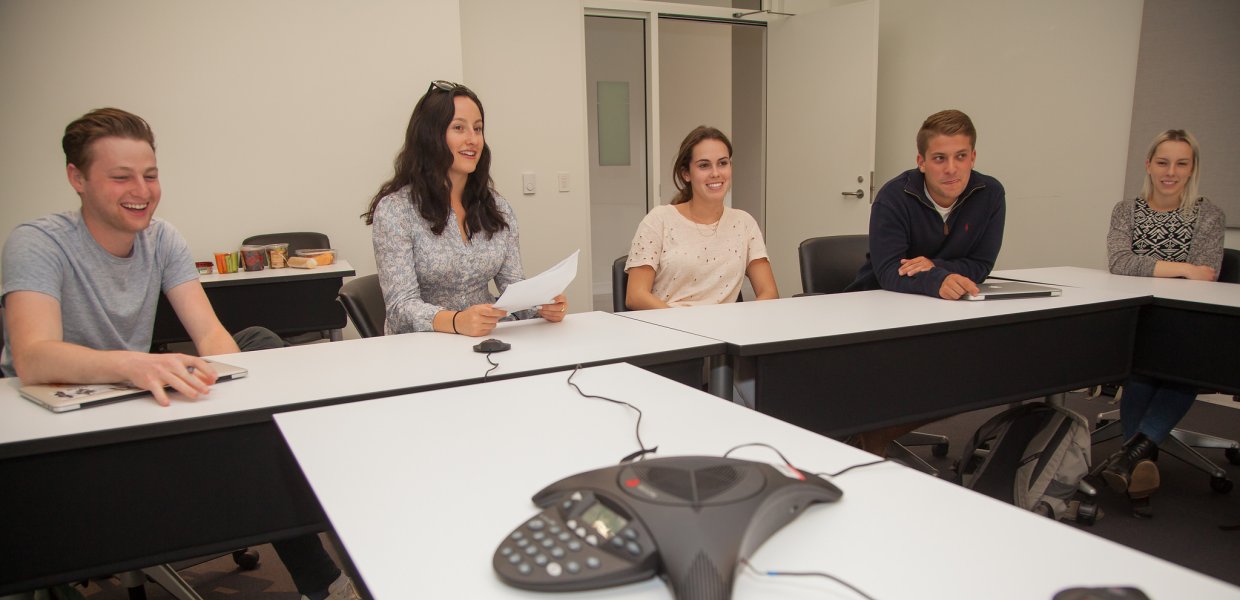USC Annenberg Professor Geoffrey Cowan’s JOUR 460 class, Social Responsibility of the News Media, explores the role of journalism and society through a political and historical lens.
This semester, Cowan’s students have had a unique view of the subject matter. They have watched and participated, in real time, with the startup of Axios, a news-centered media site launched in January by three veterans of Politico.
For the first half hour of every class, representatives from the startup — self-labeled as “a new media company delivering vital, trustworthy news and analysis” — speak to students about every aspect of their company. They discuss design, financials, fundraising, user-acquisition and, of course, reporting.
Cowan’s class has hosted a wide range of Axios staff members, including all three co-founders, Mike Allen, Roy Schwartz and Jim VandeHei, chief design officer Alexis Lloyd and media reporter Sara Fischer.
The goal, Cowan said, is to provide students with an inside look at a developing news organization that’s adapting to changes in the journalism industry as they unfold.
It’s not just learning about a new company — it’s watching as the company is being formed,” Cowan said. “Students have a chance to learn about this new enterprise from the people doing it. But they’re also seeing how news organizations adapt to change.
Cowan first thought of bringing Axios speakers to his class when he spoke to Ali Rubin, the company’s head of events and a USC alumna, about the way the startup was developing. Axios' official launch coincided with the start of the spring semester — and Cowan wanted to take the opportunity to show students how quickly things change in the journalism industry, as well as how organizations like Axios can adapt.
Students learned about the company’s new subscription model as it was being developed — and many said this offered a unique look at an industry that they hoped to join in the near future.
“A lot of times you have a speaker who’s specifically in marketing, or specifically on the editorial side,” said Kate Fullenweider, a senior majoring in communication. “But we’ve really gotten to see how this company is coming together, and that’s so useful.”
Cowan also highlights the way news organizations such as Axios are dealing with the policies of the Trump administration, including deteriorating trust in the media and favoritism among news sources. As a source of political news, Axios promises readers a perspective free of bias or sensationalism, especially in its daily digital newsletters that aim to provide quick information on the most important happenings in Washington, D.C.
It’s important to talk about media responsibility in the current Presidential administration, especially with a team that is building a post-election news organization, said Maral Tavitian, a senior majoring in print and digital journalism.
“Because of a lot of the pitfalls that the mainstream media fell into during the campaign, Axios avoids them. I think that’s a really interesting conversation to have with different representatives who come to the class,” Tavitian said.
Ultimately, Cowan hopes his class taught students not just about the role that readers have in choosing their news sources, but about the responsibility media organizations have to seek objective reporting that’s still readable and accessible.
“You’ve got to be reporting what’s going on, and at the same time you want to be balanced enough so that sources will talk to you and everybody wants to read you,” Cowan said.
“The students are watching how a news organization works and tries to thread its way during this time -- both as a news operation and a business operation in the middle of this crazy climate.”
